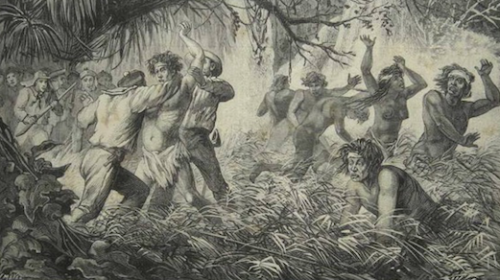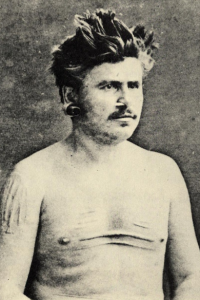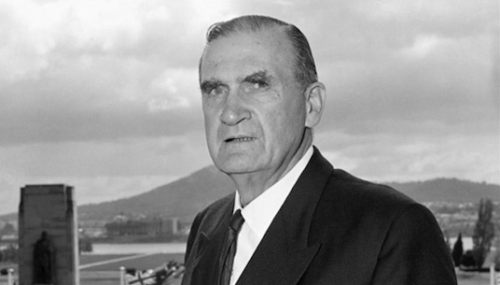

And while that “Little England” of the south has expunged its shameful history of Aboriginal genocide from its map and its consciousness, the Lockhart experience could hardly be more different. Indeed, its civic affairs and most of its business ventures are all in capable indigenous hands.
I stayed in one of the well-appointed cabins near the airport. The complex is run by Jasmine Accoom, one of those super-efficient Aboriginal women who really make the community buzz. It’s about eight kilometres from the township itself, which is on a bay that connects to the Coral Sea and the Great Barrier Reef.
To reach it you need a hire car, unless you’re lucky enough to be met at the airport (as I was) by Norman Bally, the deputy mayor. Norman is a lovely bloke, an Aboriginal with a kindly sense of humour. He was good enough to meet me because I’m researching and writing a book that, with a bit of luck, should be very good for Lockhart’s tourist industry.
It’s the true story of a French cabin boy, Narcisse Pelletier, who in 1858, aged only 14, was marooned by his “shipmates” on a nearby beach opposite Night Island. He would have died of thirst and starvation but was spotted by three Aboriginal women. They had never seen a white man before, but one gave him water while the other two ran to get their husbands. And when the men arrived they took him in.

One of them, Maademan, would “adopt” him; and his son Sassy would become Narcisse’s boon companion as he lived with the Night Island people for the next 17 years. Then in 1875 a group of English sailors landed and spotted this white man. They captured him and, fiercely against his will, sent him back to France. There he got a job on a lighthouse and spent his days and nights looking back across the sea to his spiritual home on the other side of the world. He died at only 52 from – I believe – a broken heart.
Some say that in spirit, if not physically, he returned and was seen many times by a variety of observers. As a rock-ribbed atheist, naturally I give such stories little credence. But something happened during the journey that Norman took me on that has shaken my faithlessness just a little. And perhaps I will speak of it in the book.
I have been researching the story for a year and it’s to be published in Australia, Britain and Europe (France especially) in 2019.
When that happens, Norman and I think quite a few readers might be interested to come and see the places where all his adventures occurred. And since he married three times, fathered three children and killed four men in combat, it has all the ingredients of a rattling good story.
So we spent the day together; and we became such good friends that we now speak regularly through the magic of email. And whenever I think about Tasmania and the way they have buried their history, I despair for them.
Who can be trusted?
In a world of spin and confusion, there’s never been a more important time to support independent journalism in Canberra.
If you trust our work online and want to enforce the power of independent voices, I invite you to make a small contribution.
Every dollar of support is invested back into our journalism to help keep citynews.com.au strong and free.
Thank you,
Ian Meikle, editor




Leave a Reply